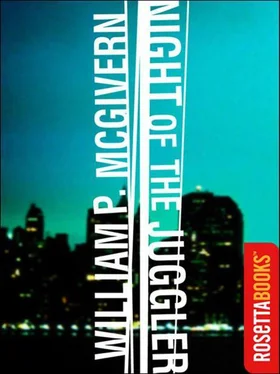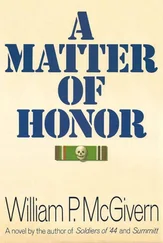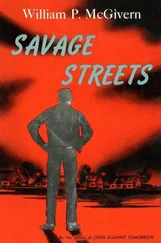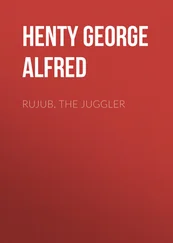William McGivern - Night of the Juggler
Здесь есть возможность читать онлайн «William McGivern - Night of the Juggler» весь текст электронной книги совершенно бесплатно (целиком полную версию без сокращений). В некоторых случаях можно слушать аудио, скачать через торрент в формате fb2 и присутствует краткое содержание. Жанр: Триллер, на английском языке. Описание произведения, (предисловие) а так же отзывы посетителей доступны на портале библиотеки ЛибКат.
- Название:Night of the Juggler
- Автор:
- Жанр:
- Год:неизвестен
- ISBN:нет данных
- Рейтинг книги:3 / 5. Голосов: 1
-
Избранное:Добавить в избранное
- Отзывы:
-
Ваша оценка:
- 60
- 1
- 2
- 3
- 4
- 5
Night of the Juggler: краткое содержание, описание и аннотация
Предлагаем к чтению аннотацию, описание, краткое содержание или предисловие (зависит от того, что написал сам автор книги «Night of the Juggler»). Если вы не нашли необходимую информацию о книге — напишите в комментариях, мы постараемся отыскать её.
Night of the Juggler — читать онлайн бесплатно полную книгу (весь текст) целиком
Ниже представлен текст книги, разбитый по страницам. Система сохранения места последней прочитанной страницы, позволяет с удобством читать онлайн бесплатно книгу «Night of the Juggler», без необходимости каждый раз заново искать на чём Вы остановились. Поставьте закладку, и сможете в любой момент перейти на страницу, на которой закончили чтение.
Интервал:
Закладка:
Rudi’s parents and his older brother and sister had been in that group of seventy-four Jews. But even that had not seemed as incredible and horrifying as the violation of Ilana.
Rudi had been spared through the intervention of the parish priest, who-having been a longtime friend and chess opponent of the rabbi-gave the little boy sanctuary in the basement of the church until the crowded trucks with their wailing cargo had rolled out of the village.
The gray and frightful years had gone by like slow, ominous shadows, and then the Americans came and after them, the survivors, liana and three other children, the only ones left from the dozen families who five years before had charged the streets and shops of the village with their exuberant energy.
And one day an American Army captain, second cousin to the mother of one of the exterminated families, had come to the village in a jeep with a driver and a large American sergeant who wore three rows of campaign ribbons on his Ike jacket and a.45 automatic on his cartridge belt.
The four survivors and Rudi had joined the captain and the sergeant in a cold room to drink American coffee and to eat American chocolate while Ilana told the captain, who was small and wore bifocals and whose name was Adler, what had happened to the people of the village, including the captain’s relatives.
Ilana was now thirteen, shrunken and destroyed, but still beautiful to Rudi, with despairing, haunted eyes which seemed to him the most dreadful symbols of what had been inflicted on her and all the others.
Ilana spoke in German with occasional lapses into Yiddish, and Captain Adler translated her words into English in a voice that was racked by emotion and broken on occasion with stifled sobs.
“There were two lines,” Ilana said, and Captain Adler translated the words to the American sergeant. “One was for the healthy who could work; the other was for the old and sick and crippled, no matter how young they were. That line went into the gas chamber.
The two lines were only six feet apart, separated by soldiers. My mother was walking to the gas chamber. I was in the other line.
When the soldiers were not looking, I got into the line with my mother. I wanted to die with her. I told her that, and she said she would help me. She put her coat around me so the soldiers wouldn’t see. She was crying, and I could feel her heart beating very fast.
But before we reached the door to the gas chamber, my mother pulled her coat away from me and threw me into the arms of a soldier. She screamed that I must try to live. I fought the soldier and tried to get back to my mother; but she was gone by then, and the door had closed. I couldn’t see her. They shoved me into the other line, and I tried for the next years to do what my mother had asked me to do, to try to live.”
But that grotesquely unfair and demoralizing struggle had been an empty victory; Ilana was dead within ten months of her release from the camp, her lungs betraying her unquenchable spirit.
This was the dreadful fear that had been burned into Rudi Zahn’s consciousness, and this was what Crescent Holloway could never understand; she had never in her life been vulnerable and helpless, and she couldn’t conceive how that experience could cripple a person’s character and confidence.
Money, with its consequent privilege and power, was the only specific against such terrors. .
In the lobby of Kate Boyd’s building the elevator doors opened and Mrs. Root Cadwalader stepped from the car with a bulky piece of luggage. She put the bag down and waved to Mr. Brennan, who was standing under the canopy in front of the building.
Mr. Brennan glanced through the revolving doors and saw Mrs. Cadwalader beckoning to him at the same instant that Kate noted what had caught Harry Lauder’s attention on the opposite side of Fifth Avenue.
It was a kitten, crawling uncertainly along the sidewalk, a white fur star gleaming on its black forehead.
Mr. Brennan hurried into the lobby and picked up Mrs. Root Cadwalader’s suitcase. “You’ll be needing a cab, Mrs. Cadwalader?”
“Yes, please, John. I have a seven thirty flight to Chicago.”
“Visiting your grandson then? How old is he now?”
“Sixteen, John.”
“Good heavens, where does time go? I remember him roller skating on the sidewalk here, just a lad.”
“Well, he’s sixteen, and he’s got a driver’s license to prove it. He’s meeting me at O’Hare in Chicago.”
During these exchanges between John Brennan and Mrs. Cadwalader, Kate had stopped to stare with longing eyes across the avenue at the little kitten, which she felt certain must be lonely, hungry, frightened by the sounds of horns and traffic.
She had been forbidden by her father to cross Fifth Avenue, but she was rationalizing that injunction now, telling herself that he couldn’t blame her for going to the rescue of a helpless little animal. Kate had been trained by her father to take care of dogs and horses, to make sure that they were fed and dry and warm, that their stalls or runs were clean, before going inside for her own bath and dinner. These were not chores you depended on grooms to perform, because a horse or dog trusted and obeyed the person who took care of it. That was not a responsibility to delegate to anyone else, her father had always insisted. Get in the habit of doing those chores yourself. And with these thoughts came another, prompted by a verse they were reading at Miss Prewitt’s: “Down to Gehenna and up to the throne, he travels the fastest who travels alone.”
The words thrilled her and made her feel strong and invulnerable.
Tightening her grip on Harry Lauder’s leash, she waited for a break in the traffic and then ran across Fifth Avenue to the sidewalk that flanked Central Park.
Harry Lauder barked so noisily at the crying kitten that Kate bent and gave him a sharp tap on his muzzle. But then the Scottie began to bark at something or someone in the thick shrubbery behind the four-foot black stone wall bordering this stretch of the park. And when Kate reached down to pick up the kitten, her dog leaped away from her and his leash slipped through her gloved hand. In an instant he was gone, scrambling first onto a park bench and then to the top of the wall, where he jumped from sight into thick tangles of spicebush and shining sumac.
Kate called for him to come back, her voice high and urgent, but the sound of his thrashing progress through the grove of underbrush warned her that he was already deeper into the park.
What a mess! she thought. If he got lost, she’d be blamed for it. And she’d deserve it. But if she took time to go and get her father, they might never find him.
She knew there was an entrance into the park just to her north. Kate hesitated only an instant, and then she put the kitten on the park bench and ran as fast as she could toward the next intersection.
Calling her dog’s name in a high, anxious voice, Kate ran along a cobbled pathway through the park and when she turned and ran back toward the area where he had got away from her, she was under huge English oaks whose shadows fell about her like great dark wings.
She stopped at approximately the place where Harry Lauder had scrambled into the park and stood listening for sounds of him above the noise of traffic on Fifth Avenue.
Then, while she stared about helplessly, she heard the Scottie barking, but he was a long way off, it seemed, his yelping coming faintly from a dark stand of trees near the East Drive.
Calling his name again, she ran toward the sound of his barking, her slim body blending and finally merging with the shadows until only her fair, streaming hair could be seen reflecting the last of the day’s sunlight.
And watching the plume of blond hair and waiting for Kate among that thicket of trees stood Gus Soltik, the barking little dog helpless in his huge hands.
Читать дальшеИнтервал:
Закладка:
Похожие книги на «Night of the Juggler»
Представляем Вашему вниманию похожие книги на «Night of the Juggler» списком для выбора. Мы отобрали схожую по названию и смыслу литературу в надежде предоставить читателям больше вариантов отыскать новые, интересные, ещё непрочитанные произведения.
Обсуждение, отзывы о книге «Night of the Juggler» и просто собственные мнения читателей. Оставьте ваши комментарии, напишите, что Вы думаете о произведении, его смысле или главных героях. Укажите что конкретно понравилось, а что нет, и почему Вы так считаете.












